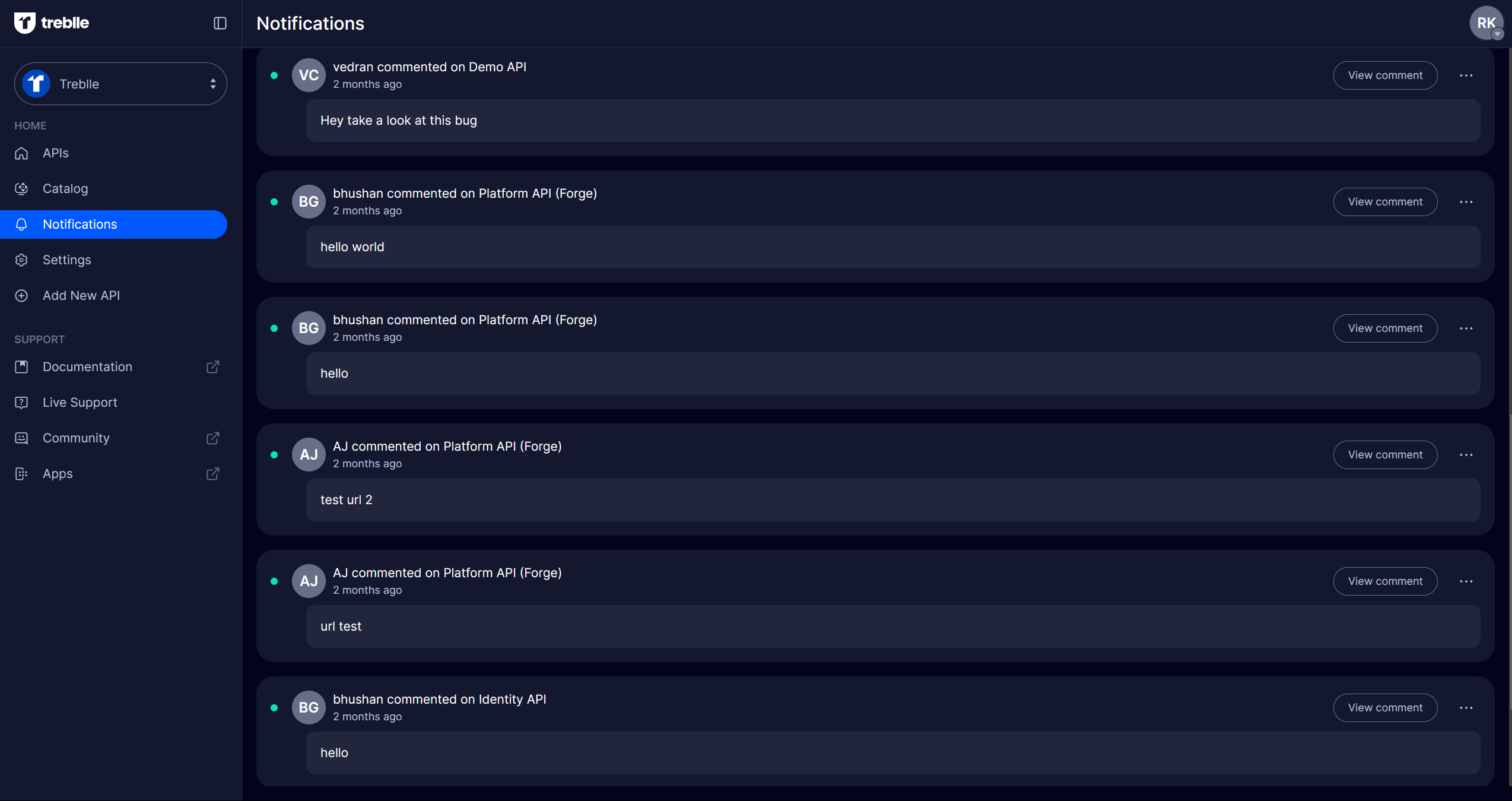Other | Dec 18, 2024 | 6 min read | By Rahul Khinchi | Reviewed by Vedran Cindrić

Rahul Khinchi is a Developer Advocate at Treblle, where he focuses on improving API workflows and developer experience. He writes technical content on API observability, security, and governance, and builds open-source tools to demonstrate real-world API use cases. Rahul has spoken at developer meetups and universities, and previously held developer advocacy roles at Syncloop. He was selected for Google Summer of Code in 2022 and has led community initiatives supporting thousands of beginners in open source.
When something goes wrong with an API, the last thing you want is to be the last to know. If your API suddenly starts throwing errors or slows down unexpectedly, learning about it right away can save you a lot of trouble.
We added Custom Alerts to Treblle 3.0 to help you catch problems early without digging through logs or being bombarded with unnecessary notifications.
However, Custom Alerts are not the only new feature in Treblle 3.0. Along with alerts, we've rolled out several other powerful updates to make managing your APIs smoother and more efficient. These include Workspaces, SSO*, *MFA & Social Sign-on, API Catalog, and Compliance. They can significantly enhance your API management and team collaboration if you still need to explore them.
In this blog post, I will walk you through Custom Alerts, explain why they matter, and how they can help make your API workflow smoother and more effective.
Custom Alerts is a feature that lets you define specific events or configure alerts for specific triggers, like a rise in error rates or unexpected traffic from a particular IP.
Once you set your criteria, Treblle will notify you as soon as those conditions trigger.
Here’s what makes Custom Alerts powerful:
It’s all about putting you in control of the noise.
Create a Saved Search:
Request tab inside Treblle dashboard
POST requests to /auth/register.Filtering POST requests
Save your search by clicking “Save.”
Saving your filter
Naming your filter for future reference
Set Up a New Alert:
"My Alerts" section
Creating a Custom Alert
Setting up a Custom Alert details
Slack Integration:
Setting up Slack integration
In-App Notifications:

Scenario: You’ve just deployed a new feature to production and want to ensure it’s working as expected.
Saved Search Example:
Filters:
POST5xx/auth/registerAlert Rule: Trigger if the error rate exceeds 5% of total requests in 30 minutes.
Why It’s Useful: This alert helps identify issues like server misconfigurations or unhandled exceptions right after deployment. By catching these problems early, you can quickly roll back changes or fix them before they impact users.
Scenario: Your product relies on fast API response times to deliver a great user experience, and you want to ensure latency stays within acceptable limits.
Saved Search Example:
Filters:
Greater than 200ms200/searchAlert Rule: Trigger if more than 10% of requests exceed the response time threshold within an hour.
Why It’s Useful: This allows product teams to address performance bottlenecks proactively before they negatively impact users.
Scenario 1: Detect brute force attacks on login endpoints.Saved Search Example:
Filters:
POST/login401 (Unauthorized)Alert Rule: Notify if failed login attempts exceed 100 in 10 minutes.
Why It’s Useful: This can help security teams identify and mitigate brute force attacks in real-time.
Scenario: Your team has committed to a 99.9% uptime SLA, and you must be alerted when downtime or failures occur.
Saved Search Example:
Filters:
5xxGreater than 1sAlert Rule: Notify if more than 2% of requests in 5 minutes fail or are too slow.
Why It’s Useful: Ops teams can take immediate action, such as scaling resources or restarting services, to restore regular operations and meet SLA commitments.
Setting up alerts is easy, but getting the most out of them takes a bit of thought. Here are some tips to make sure your Custom Alerts are as helpful as possible:
Custom Alerts in Treblle 3.0 offer a simple yet effective way to stay on top of your APIs.
They help you focus on what matters, keeping you informed about critical events without drowning in irrelevant notifications.
Need real-time insight into how your APIs are used and performing?
Treblle helps you monitor, debug, and optimize every API request.
Explore Treblle
Need real-time insight into how your APIs are used and performing?
Treblle helps you monitor, debug, and optimize every API request.
Explore Treblle
 Other
OtherHackers breached FIA’s driver portal, exposing Max Verstappen and other F1 drivers’ data. In this article, we covered a detail breakdown, security takeaways, and how it could have been stopped.
 Other
OtherIn Sept 25, JLR suffered a major cyber attack. In this article, we provided a complete breakdown of the JLR breach, detailing what happened, how it occurred, and the lessons learned.
 Other
OtherThe newly developed Treblle Next.js SDK supports the App Router, Pages Router, and Edge runtime.